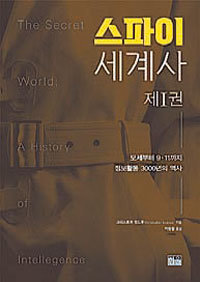How 007 agents contribute to world history behind the scenes
How 007 agents contribute to world history behind the scenes
Posted October. 02, 2021 07:17,
Updated October. 02, 2021 07:17

“I wasn't going to let him die. He is our ally,” says Ilsa Faust, a member of British intelligence service MI6, to her boss in a Hollywood spy film titled “Mission: Impossible – Rogue Nation.” She explains why she risks her life to rescue Ethan, a U.S. intelligence agent, because the two nations are allies. This movie scene shows the special relationship between Washington and London in terms of state intelligence. Washington has recently decided to transfer nuclear submarine technology to Australia despite half the century’s principle of nonproliferation of nuclear weapons. Technically saying, the decision was mainly affected by the Five Eyes, an intelligence sharing alliance network of Anglo-Saxon nations – the United States, Britain, Canada, Australia and New Zealand.
The author, a former Cambridge University professor, looks back at three thousand years’ history of international intelligence from Moses-led explorations of the “Promised Land” to the September 11 Attacks in New York. He points out that you should have a understanding of how the United States and Britain cooperate in terms of intelligence to figure out the backdrops and nature of the honeymoon relationship of the two allies since the second World War.
As long as nations are aware of intelligence and make full use of it, they have risen as winners according to history. A great example is Britain. Based on painful experience during the first World War, it aggressively collected SIGINT, or signal intelligence to fight against the Nazis. By contrast, the United States was victimized by the attack on Pearl Harbor by Japanese forces as it failed to pay more attention to the enemy’s cryptotexts. The author advises you to grasp ideologies and historic trends of potentially intimidating nations. Equipped with a deep understanding of Nazi and communist ideologies, Western countries’ intelligence authorities played a remarkable role in the second World War and the Cold War. However, since the Cold War era ended, they have been left with little knowledge of Islamic extremism, resulting in the September 11 attacks and the withdrawal of the U.S. forces from Afghanistan.
The author emphasizes that intelligence should never be interpreted and processed by those in power to prevent a failure in intelligence which can lead to a security crisis. That is why it comes as a scathing critique that the National Intelligence Service made failed predictions about transfer of power among North Korean leadership after the third inter-Korean summit amid the easing of tensions.
Sang-Un Kim sukim@donga.com







